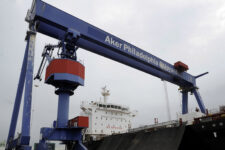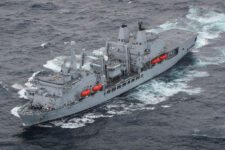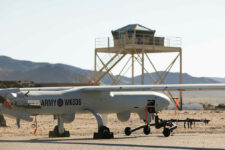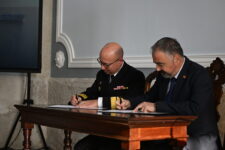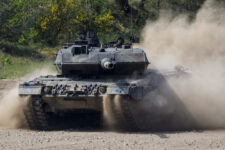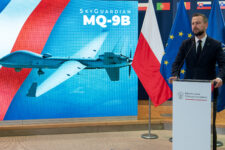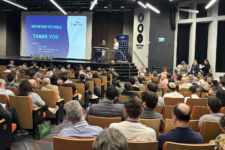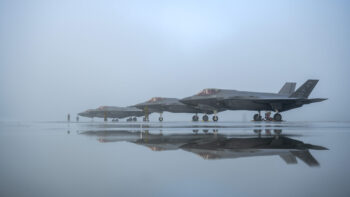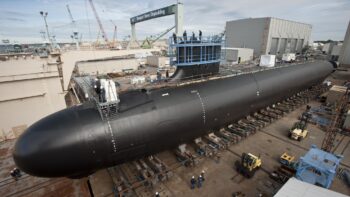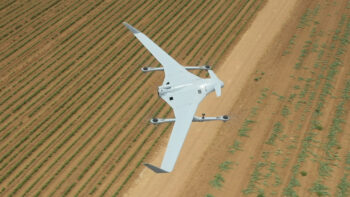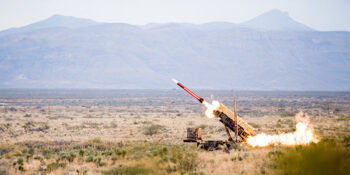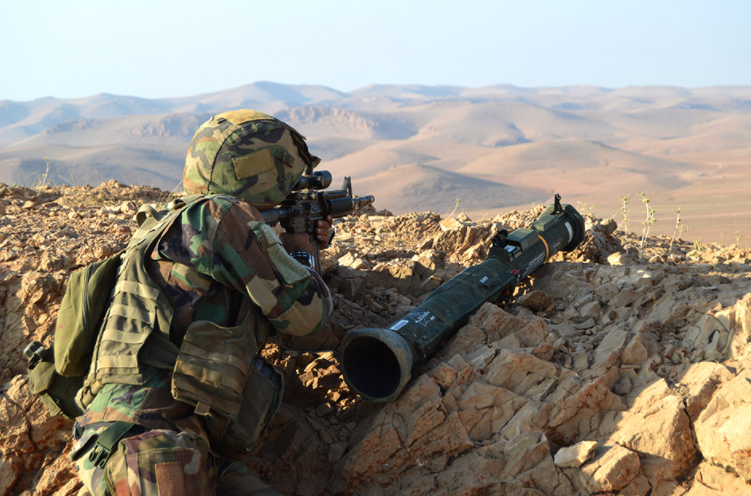
A Lebanese soldier during Operation Fajr al-Joroud — Dawn of the Outskirts — against Daesh (ISIS) positions on the outskirts of al-Qaa and Ras Baalbek towns. (Lebanese Army)
BEIRUT: The United States, Russia, China, Gulf countries, EU member states and UN representatives took part yesterday in a French-sponsored conference aimed at supporting the Lebanese Armed Forces (LAF) hit hard by unprecedented financial and economic pressures.
LAF commander Gen. Joseph Aoun described his situation simply: “It is extremely hard for a military commander to seek support from foreign countries when his own state is not capable of acting and is even cutting budget.” How bad is it? “The situation is critical. If unmitigated, the economic and financial crises will inevitably lead to the collapse of all state institutions including the LAF,” he added.
“The LAF, yet overstretched, remains a crucial pillar of the Lebanese State,” the French Armed Forces Ministry said in a statement after the conference. “Their cohesiveness and professionalism remain key to preserving the country’s stability from more risks.”
The goal of the conference was not to provide the LAF with additional military equipment and materiel, or to finance military pay and pensions.
The wide participation, Lebanese military officials say, clearly highlights that the Lebanese army is “the main pillar of the country’s stability and security, and the only legitimate power in the presence of armed groups such as Lebanese Hezbollah.”
Lebanon faces one of the worst economic downturns in its history, exacerbated by the outbreak of the Covid-19 pandemic and the huge explosion in the port of Beirut. On top of those factors, the country hosts the highest number of refugees per capita in the world, with approximately 2 million Palestinian and Syrian refugees calling Lebanon home.
The LAF seeks two types of help. “The first relates to sustaining its operational capabilities, which ultimately ensures the provision of the needed spare parts, fuel, medical support and food supplies,” Aoun said. “The second relates to directly supporting the soldier as an individual to assist him in any way to overcome the economic hardship and to prevent his delinquency.”
Well-informed Lebanese defense sources told Breaking Defense that the LAF presented a $100 million wish list, with $40 million for medical supplies and $60 million for food supplies and salaries. Pledges to provide the latter were offered by several participating countries, without adding further information.
The cuts in the defense budget and the devaluation of the Lebanese currency have led to a reduction of 90% in the value of the salaries reflected in the significant loss of the purchasing power, 90.4% in food supplies, 90.6% in equipment, operations and maintenance and 90.4% in healthcare.
In addition, the military attaches positions abroad were cancelled, and overseas training courses were limited to those that are carried out at the expense of the host country, stated Gen, Aoun.
The sources also said the conferees did not pledge specific amounts, but they promised to provide aid to the LAF, highlighting the dire and steadily degrading economic and social conditions in Lebanon.
Unlike two previous conferences, known as Rome I and Rome II, designed to provide training, weapons or military hardware, the meeting was centered on finding ways to bolster the cohesion, resilience, and stability of the LAF.
“The Paris conference is meant to prompt partner nations to think creatively about how to help the LAF through 2021,” said Aram Nerguizian, an expert at the Center for Strategic and International Studies in Washington, “but also in ways that allow the command of the armed forces to focus on its missions—border security, counterterrorism, internal stability—as opposed to fighting a singular battle to maintain the LAF’s stability, with no real Lebanese government assistance.”
Lebanese retired Air Force Brig. Gen. Andre Bou Maachar says the meeting holds many meanings.
“On one hand, it shows that the international community is renewing its confidence in the Lebanese military institution and leadership,” he said. “On the other hand, the conference signifies the constant support of the community to secure the necessary funding to provide the LAF’s operational and military needs.”
This is also, Bou Maachar said, a clear sign that the international community hopes the LAF will “potentially lead the transitional phase that may arise from the ongoing institutional vacuum.”
In a nutshell, the conference was more political than anything else. “It was clear that there was a debate in the international community on whether the emergency response should come prior to any political reform in the country,” Bou Maachar added. “In addition, the fact that UNSCOL stated that the initial round of negotiating bilateral cooperation will start in September somehow reflects that emergency response was not the objective of the conference.”
This was also reinforced by the fact that Saudi Arabia was not present at the conference, unlike the UAE and Qatar, “which shows how unstable the political relationship between Lebanon and the Kingdom is.”
Concluding, Bou Maachar said: “This is not what we expected at all, especially after President Macron’s statement at the G7 summit June 11-13 that they are working with partners in the international community so that at some point (..) if the absence of government persisted, we could succeed in preserving a system which would allow the funding of essential activities and support for Lebanon. Where is all that?”
What to expect?
“Egypt and Iraq, are better positioned to give in-kind aid in terms of food stocks, medical supplies, and fuel,” said Nerguizian. “Saudi Arabia, however, have the resources, but would have to realign their interests back to support for the LAF, an idea that has been cast aside for more than five years.”
To Nerguizian, the actor that will make the most critical difference is the US, who has bumped up Lebanon’s Foreign Military Financing (FMF) account by $15 million to $120 million for fiscal 2021.
“The U.S. is also poised to provide some $59 million Section 1226 funding to the LAF,” he said. “Section 1226 is a DOD funding authority that has enabled the U.S. government to reimburse key partner states—especially Lebanon and Jordan—for border security and counterterrorism operations. Section 1226 is unique as it is currently the only mechanism through which the U.S. government can directly transfer funds to a partner nation.”
Countries like France and the United Kingdom have much less discretionary funding available to support the LAF. “However, where they—along with the U.S. and Egypt—can play a critical role is in framing to other potential partners such as Saudi Arabia and the United Arab Emirates the strategic significance of preventing the further degradation of the LAF—a degradation that only benefits actors such as the Iran-backed Hezbollah, which would loom even larger in Lebanese national security politics”, he concluded.
Top defense insights from 2024
A curated look at standout opinions and analysis covering topics like uncrewed systems, NATO partnerships, US-Saudi defense dynamics, and evolving warfare strategies, spotlighting key issues shaping the global defense landscape.


